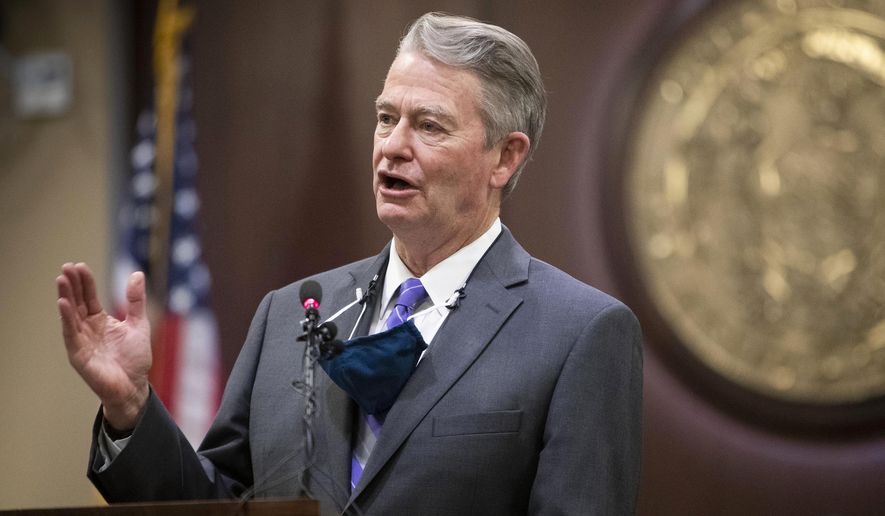Indiana and Idaho this week became the latest states to enact bans on gender-transition medical procedures for minors, an issue that shows no sign of slowing in red-state legislatures despite enormous pushback from transgender rights groups.
Indiana became the 15th state to implement age restrictions after Republican Gov. Eric Holcomb signed legislation Wednesday barring those under 18 from accessing puberty blockers, cross-sex hormones and transition surgeries.
“Permanent gender-changing surgeries with lifelong impacts and medically prescribed preparation for such a transition should occur as an adult, not as a minor,” Mr. Holcomb said in a statement. “There has and will continue to be debate within the medical community about the best ways to provide physical and mental health care for adolescents who are struggling with their own gender identity.”
Senate Bill 480, which takes effect July 1, allows minors until January to wean off gender-transition drugs.
One day earlier, Idaho Gov. Brad Little signed a bill barring gender-transition drugs and procedures for minors, becoming the 14th red state to enact age restrictions as the debate over transgender rights versus medical consent rages in state legislatures.
The Vulnerable Child Protection Act prohibits medical professionals from prescribing puberty blockers, cross-sex hormones and surgeries intended to align a child’s appearance with their opposite-sex gender identity, an issue gaining national attention amid a surge in children’s gender clinics.
In his signing statement, Mr. Little urged legislators to tread carefully when overriding the will of parents.
“In signing this bill, I recognize our society plays a role in protecting minors from surgeries or treatments that can irreversibly damage their healthy bodies,” Mr. Little said in his signing statement. “However. as policymakers we should take great caution whenever we consider allowing the government to interfere with loving parents and their decisions about what is best for their children.”
The legislation, which passed overwhelmingly in the House and Senate, takes effect in January. Doctors found guilty of violating the law could be charged with a felony and face up to 10 years in prison.
LGBTQ advocates who had urged Mr. Little to veto House Bill 71 accused him of turning his back on parental rights by denying their children access to “gender-affirming care.”
“We are heartbroken for the families of Idaho today. We are watching parental rights being dismantled in the name of stigmatizing and harming our most vulnerable youth,” said Chelsea Gaona-Lincoln, executive director of the transgender-rights group Add the Words, Idaho.
Eleven states have passed laws and another three have enacted administrative restrictions restricting gender-transition treatments for those under 18, according to the American Principles Project.
Terry Schilling, president of American Principles Project, said it was “encouraging to see lawmakers nationwide taking action to protect children from the predatory transgender industry.”
“The vast majority of Americans recognize that children are too young to consent to these procedures, which will have permanent, potentially destructive consequences for their long-term health,” he said. “It is a massive scandal that such ‘treatments’ are being offered at all, and legislators are fully justified in putting a stop to it.”
Last week, the Kentucky Legislature overrode the Democratic governor’s veto of a bill banning gender-transition medical treatments for minors. West Virginia Gov. Jim Justice signed a bill requiring two medical professionals and parents to consent to gender-transition treatments for those under 18.
Democrat-controlled states have swung back with proposals guaranteeing access to such treatments and protecting parents and doctors from prosecution. California became the first state to pass a “transgender sanctuary state” bill last year.
• Valerie Richardson can be reached at vrichardson@washingtontimes.com.




Please read our comment policy before commenting.